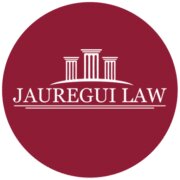Best Drug Crime Lawyers in Florida
Share your needs with us, get contacted by law firms.
Free. Takes 2 min.
Or refine your search by selecting a city:
List of the best lawyers in Florida, United States
About Drug Crime Law in Florida, United States
Drug crime law in Florida covers a wide range of offenses related to the possession, distribution, manufacture, and trafficking of controlled substances. These substances include illegal drugs like cocaine, heroin, methamphetamine, as well as the unlawful possession of prescription medications. Florida has a reputation for enforcing strict drug laws, with significant penalties that can include imprisonment, heavy fines, probation, and a permanent mark on one’s criminal record. The severity of the charges typically depends on the type and quantity of the drug involved, the circumstances of the arrest, and whether the accused has prior offenses.
Why You May Need a Lawyer
There are many situations when legal help is essential for drug crime charges in Florida. You may need a lawyer if you have been arrested for drug possession, sales, trafficking, manufacturing, prescription fraud, or if you are subject to an investigation. A criminal defense attorney can help you understand your rights, evaluate the evidence against you, and develop a defense strategy. Additionally, legal representation is important in negotiating plea deals, seeking reduced charges, or securing treatment rather than incarceration when possible. Navigating the criminal justice system without a lawyer can lead to unintended consequences, including harsher sentencing or forfeiting your property.
Local Laws Overview
Florida’s drug crime laws are primarily governed by Chapter 893 of the Florida Statutes, known as the Florida Comprehensive Drug Abuse Prevention and Control Act. The law classifies controlled substances into different schedules according to their potential for abuse and accepted medical use. Simple possession of certain drugs may be charged as a misdemeanor or felony, depending on the drug and amount. Trafficking offenses carry mandatory minimum sentences, which are especially harsh for larger quantities, including life imprisonment for some cases. Florida also has laws concerning drug paraphernalia, prescription drug offenses, and enhanced penalties for drug crimes near schools or public parks. Law enforcement and prosecutors in Florida pursue these cases vigorously, making early legal advocacy critical.
Frequently Asked Questions
What happens if I am caught with a small amount of drugs in Florida?
Even small amounts can result in criminal charges. The type and amount of the substance dictate whether you face misdemeanor or felony charges. For example, possession of less than 20 grams of marijuana is a misdemeanor, but possession of most other drugs is a felony.
What are common drug crimes prosecuted in Florida?
Common offenses include drug possession, delivery, sale, trafficking, manufacturing, prescription fraud, and possession of drug paraphernalia.
What is drug trafficking under Florida law?
Drug trafficking involves possessing, selling, purchasing, manufacturing, delivering, or transporting large quantities of controlled substances. Florida law sets strict quantity thresholds, and trafficking charges carry mandatory minimum prison sentences.
Can I go to jail for prescription drug fraud?
Yes. Unlawfully possessing, forging, or obtaining prescription medications can be charged as a felony in Florida, with substantial penalties including jail or prison time.
What are mandatory minimum sentences in Florida drug cases?
Mandatory minimums are fixed sentences that judges must impose when a person is convicted of certain drug offenses, especially trafficking. These sentences are based on the type and amount of drug involved and can range from three years to life in prison.
Do I have to consent to a search if police suspect drug possession?
You have the right to refuse consent to a search unless police have a warrant or another legal justification. You should politely state that you do not consent. Anything found during an unlawful search may not be admissible in court.
What is drug court in Florida?
Drug court is a special program designed for eligible nonviolent drug offenders. Instead of incarceration, participants receive treatment and supervision. Successful completion can result in charges being reduced or dismissed.
Can a drug conviction affect my ability to get a job?
Yes. A drug conviction can appear on your criminal record, potentially affecting employment, housing, education, and professional licensing opportunities.
Is marijuana legal in Florida?
Recreational marijuana remains illegal in Florida. However, medical marijuana is legal for qualifying patients with a doctor’s approval and adherence to state regulations.
What should I do if I am arrested for a drug crime?
Exercise your right to remain silent and request an attorney immediately. Do not try to explain or negotiate with police without legal counsel. Contact a qualified criminal defense lawyer as soon as possible.
Additional Resources
If you need more information or assistance regarding drug crime law in Florida, you may consider reaching out to the following resources and organizations:
- Florida Department of Law Enforcement (FDLE)
- Florida Office of the State Courts Administrator
- The Florida Bar Lawyer Referral Service
- Local Legal Aid Societies
- Florida Department of Children and Families - Substance Abuse Services
- National Association of Criminal Defense Lawyers (NACDL)
- Local county public defender’s offices
Next Steps
If you or a loved one is facing drug crime charges in Florida, acting quickly is crucial. Begin by gathering all documents or information related to your case, including any paperwork from law enforcement. Avoid discussing your case with anyone other than your lawyer. Contact a qualified criminal defense attorney who has experience with Florida drug laws. During your consultation, be honest and forthcoming about the details so your lawyer can best advise you. Your attorney will help guide you through the legal process, explain your options, and work to protect your rights and future.
Lawzana helps you find the best lawyers and law firms in Florida through a curated and pre-screened list of qualified legal professionals. Our platform offers rankings and detailed profiles of attorneys and law firms, allowing you to compare based on practice areas, including Drug Crime, experience, and client feedback.
Each profile includes a description of the firm's areas of practice, client reviews, team members and partners, year of establishment, spoken languages, office locations, contact information, social media presence, and any published articles or resources. Most firms on our platform speak English and are experienced in both local and international legal matters.
Get a quote from top-rated law firms in Florida, United States — quickly, securely, and without unnecessary hassle.
Disclaimer:
The information provided on this page is for general informational purposes only and does not constitute legal advice. While we strive to ensure the accuracy and relevance of the content, legal information may change over time, and interpretations of the law can vary. You should always consult with a qualified legal professional for advice specific to your situation.
We disclaim all liability for actions taken or not taken based on the content of this page. If you believe any information is incorrect or outdated, please contact us, and we will review and update it where appropriate.
Browse drug crime law firms by city in Florida
Refine your search by selecting a city.














